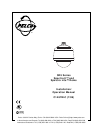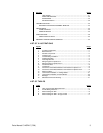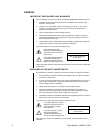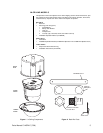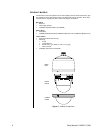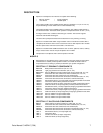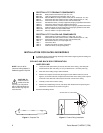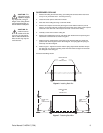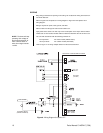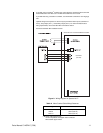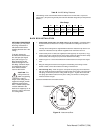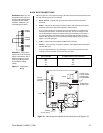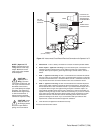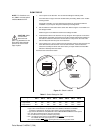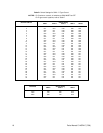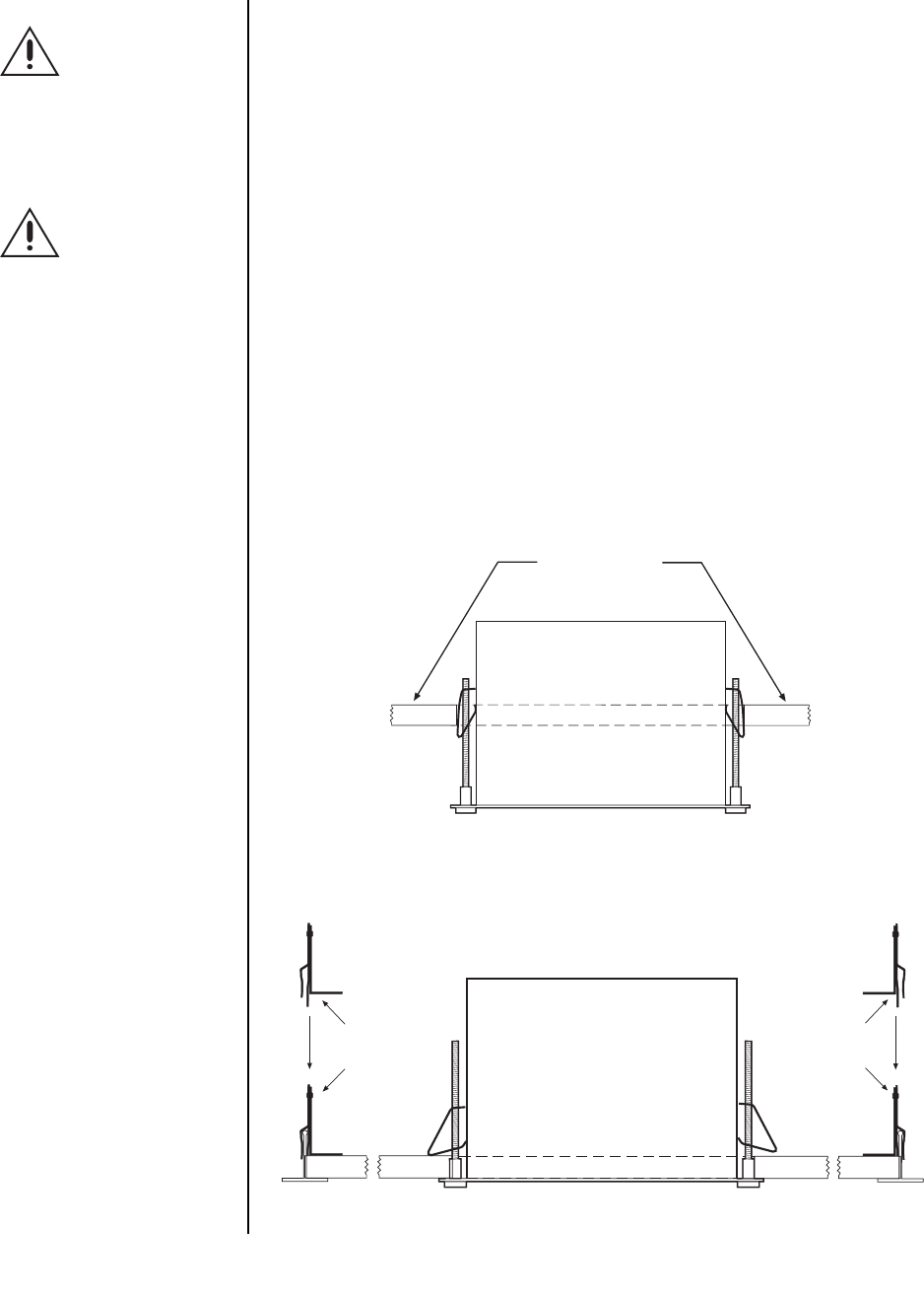
Pelco Manual C1487M-C (7/99) 9
SUSPENDED CEILING
1. Remove the ceiling tile from the ceiling. (The ceiling tile cannot be thinner than 0.50
inch [1.27 cm] nor thicker than 1.75 inches [4.45 cm].)
2. Locate the center point to drill a hole in the tile.
3. Drill a hole in the ceiling tile using a 3/32-inch drill bit.
4. Remove the compass tool from the parts bag that came with the back box (refer to
Figure 4). Press the stud of the compass tool into the hole in the ceiling. Insert a pencil
in the hole in the other end of the compass and mark a circle on the ceiling.
5. Carefully cut the circle out of the ceiling tile.
6. Remove the conduit fitting, lock nut, and safety chain bracket from the parts bag and
attach them to the back box as shown in Figure 5.
7. Refer to Figure 6. Compress the spring clips on the back box with your hands and
push the back box through the hole in the ceiling tile. The spring clips will spring out
when they clear the ceiling tile.
8. Refer to Figure 7. Tighten the screws until the spring clips hold the back box firmly to
the ceiling tile. You will hear a clicking noise when the screws are tight. Do not install
the ceiling tile in the ceiling yet.
Proceed to the
Wiring
section.
CAUTION:
The
ceiling tile must be
capable of support-
ing 16 pounds (7.3 kg) of
weight. If the ceiling tile will
not support this weight, or-
der the SD5-P metal panel.
CAUTION:
Be
careful not to cut
outside of the line.
If you do, you may not be
able to install the back box.
Also, the trim ring may not
cover the hole.
Figure 6. Installing Back Box
Figure 7. Fastening Back Box
T-RAIL CLIP
FOR
CEILING TILE
T-RAIL CLIP
FOR
CEILING TILE
HARD CEILING
OR
CEILING TILE
HARD CEILING
OR
CEILING TILE



